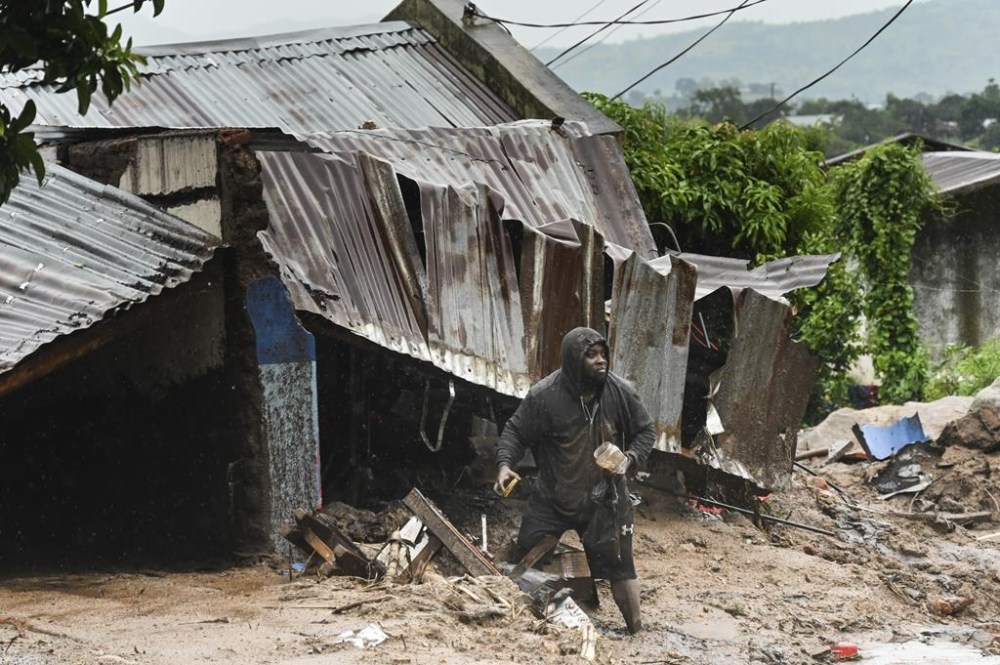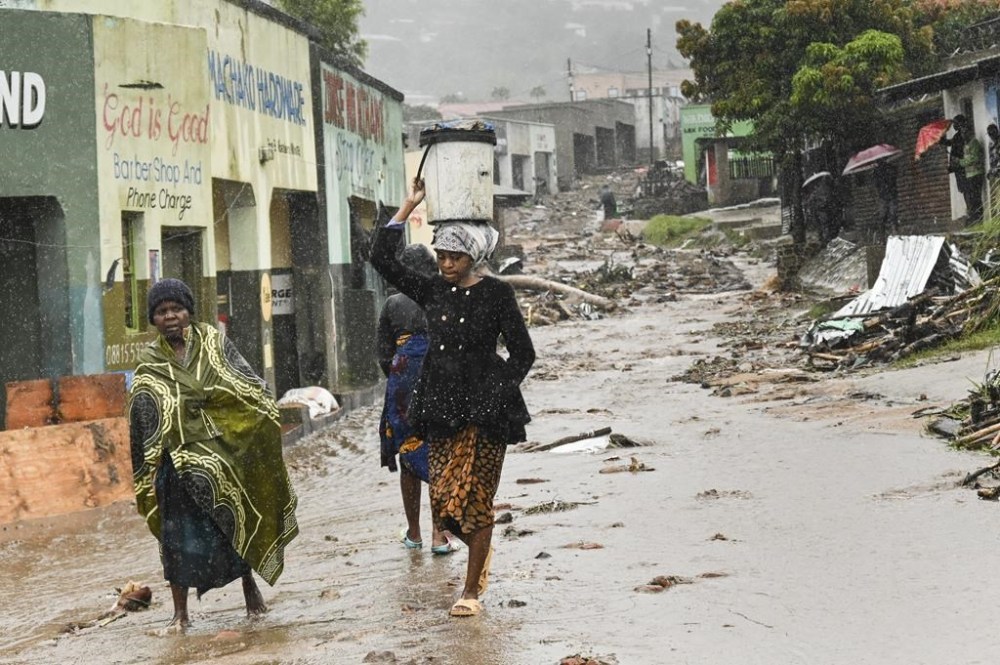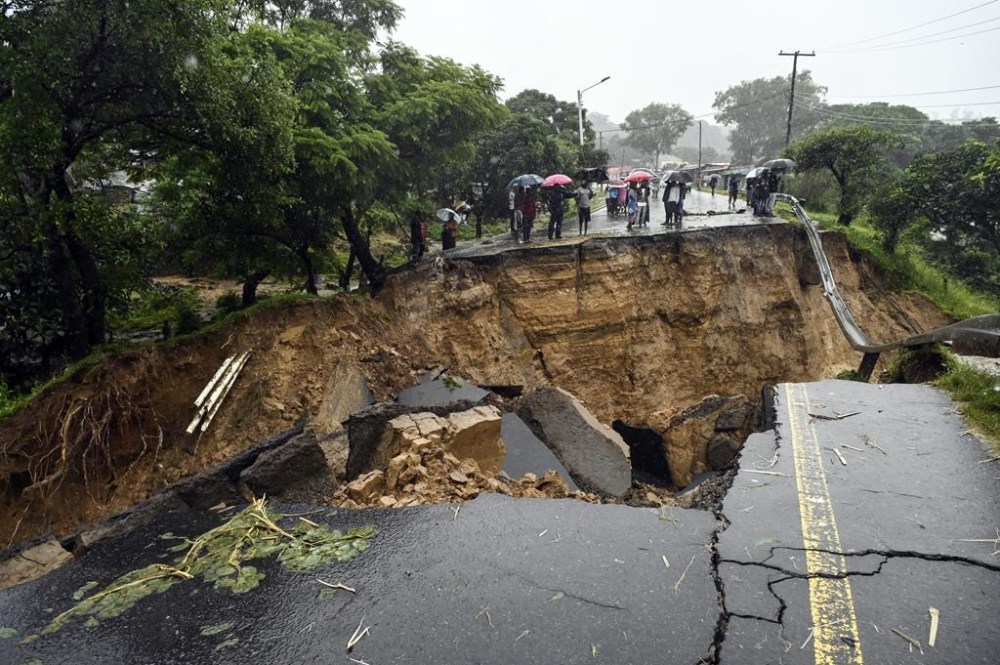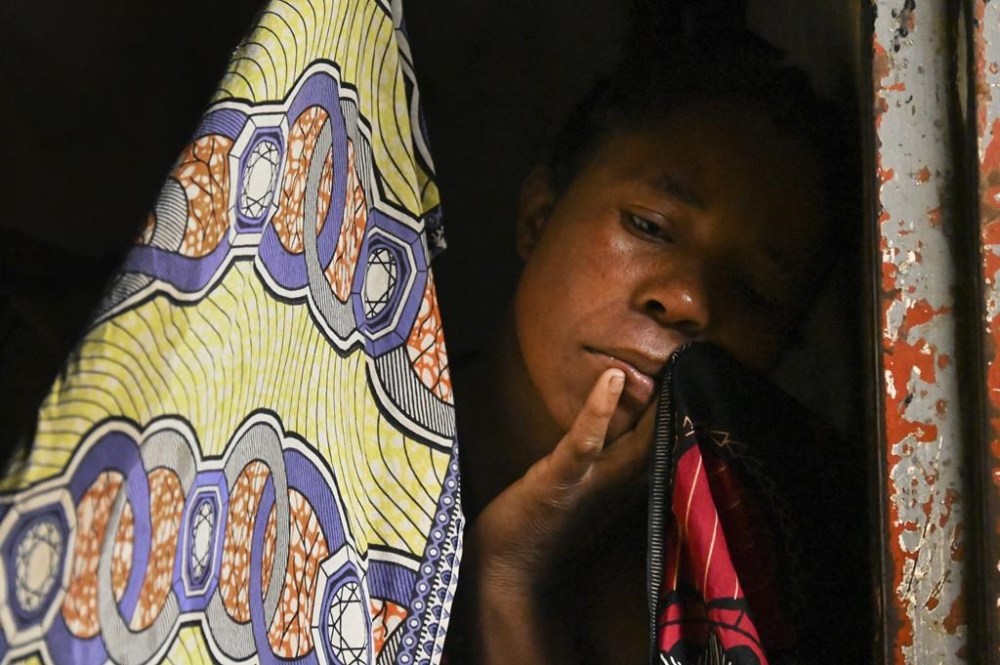Hundreds dead as Cyclone Freddy wrecks Malawi, Mozambique
Advertisement
Read this article for free:
or
Already have an account? Log in here »
To continue reading, please subscribe:
Monthly Digital Subscription
$0 for the first 4 weeks*
- Enjoy unlimited reading on winnipegfreepress.com
- Read the E-Edition, our digital replica newspaper
- Access News Break, our award-winning app
- Play interactive puzzles
*No charge for 4 weeks then price increases to the regular rate of $19.00 plus GST every four weeks. Offer available to new and qualified returning subscribers only. Cancel any time.
Monthly Digital Subscription
$4.75/week*
- Enjoy unlimited reading on winnipegfreepress.com
- Read the E-Edition, our digital replica newspaper
- Access News Break, our award-winning app
- Play interactive puzzles
*Billed as $19 plus GST every four weeks. Cancel any time.
To continue reading, please subscribe:
Add Free Press access to your Brandon Sun subscription for only an additional
$1 for the first 4 weeks*
*Your next subscription payment will increase by $1.00 and you will be charged $16.99 plus GST for four weeks. After four weeks, your payment will increase to $23.99 plus GST every four weeks.
Read unlimited articles for free today:
or
Already have an account? Log in here »
Hey there, time traveller!
This article was published 14/03/2023 (969 days ago), so information in it may no longer be current.
BLANTYRE, Malawi (AP) — The devastating Tropical Cyclone Freddy which has ripped through southern Africa in a rare second landfall has killed at least 219 people in Malawi and Mozambique since Saturday night, with the death toll expected to rise.
Heavy rains that triggered floods and mudslides have killed 199 people in Malawi, authorities said Tuesday. President Lazarus Chakwera declared a “state of disaster” in the country’s southern region and the now-ravaged commercial capital, Blantyre. Some 19,000 people in the south of the nation have been displaced, according to Malawi’s disaster management directorate.
“Power and communications are down in many affected areas, hindering aid operations,” said Stephane Dujarric, the U.N. Secretary General’s spokesperson at a press briefing Tuesday afternoon. The most affected regions remain inaccessible so the full extent of the damage is so far unknown.

Reports from Mozambique’s disaster institute on Tuesday confirmed that 20 people have died in the country and 1,900 homes have been destroyed in the coastal Zambezia province. Tens of thousands of people are still holed up in storm shelters and accommodation centers.
Freddy will continue to thump central Mozambique and southern Malawi with extreme rainfall before it exits back to the sea late Wednesday afternoon, the U.N.’s meteorological center on the island of Réunion projected.
Human rights group Amnesty International has called on the international community to mobilize resources and boost aid and rescue efforts in the two countries. Relief efforts in the nations are strained and were already battling a cholera outbreak when Freddy struck.
“It is clear that the official death toll will rise in both Malawi and Mozambique, as will reports of wrecked infrastructure,” said Tigere Chagutah, Amnesty International’s east and southern Africa director. “The affected countries must also be compensated for loss and damage caused by the cyclone.”
In November last year, nations agreed to compensate countries affected by extreme weather exacerbated by human-caused climate change. Cyclones are wetter, more frequent and more intense as the planet heats up, scientists say.

“Mozambique and Malawi are among the countries least responsible for climate change, yet they are facing the full force of storms that are intensifying due to global warming driven mostly by carbon emissions from the world’s richest nations,” Chagutah added.
Cyclone Freddy has been causing destruction in southern Africa since late February. It also pummeled the island states of Madagascar and Réunion last month as it traversed across the Indian Ocean.
The cyclone has intensified a record seven times and has the highest-ever recorded accumulated cyclone energy, or ACE, which is a measurement of how much energy a cyclone has released over time. Freddy recorded more energy over its lifetime than an entire typical U.S. hurricane season.
Freddy first developed near Australia in early February and is set to be the longest-ever recorded tropical cyclone. The U.N.’s weather agency has convened an expert panel to determine whether it has broken the record set by Hurricane John in 1994 of 31 days.
___

Alexandre Nhampossa and Tom Gould contributed to this report from Maputo, Mozambique. Kabukuru reported from Mombasa, Kenya.
___
Associated Press climate and environmental coverage receives support from several private foundations. See more about AP’s climate initiative here. The AP is solely responsible for all content.


